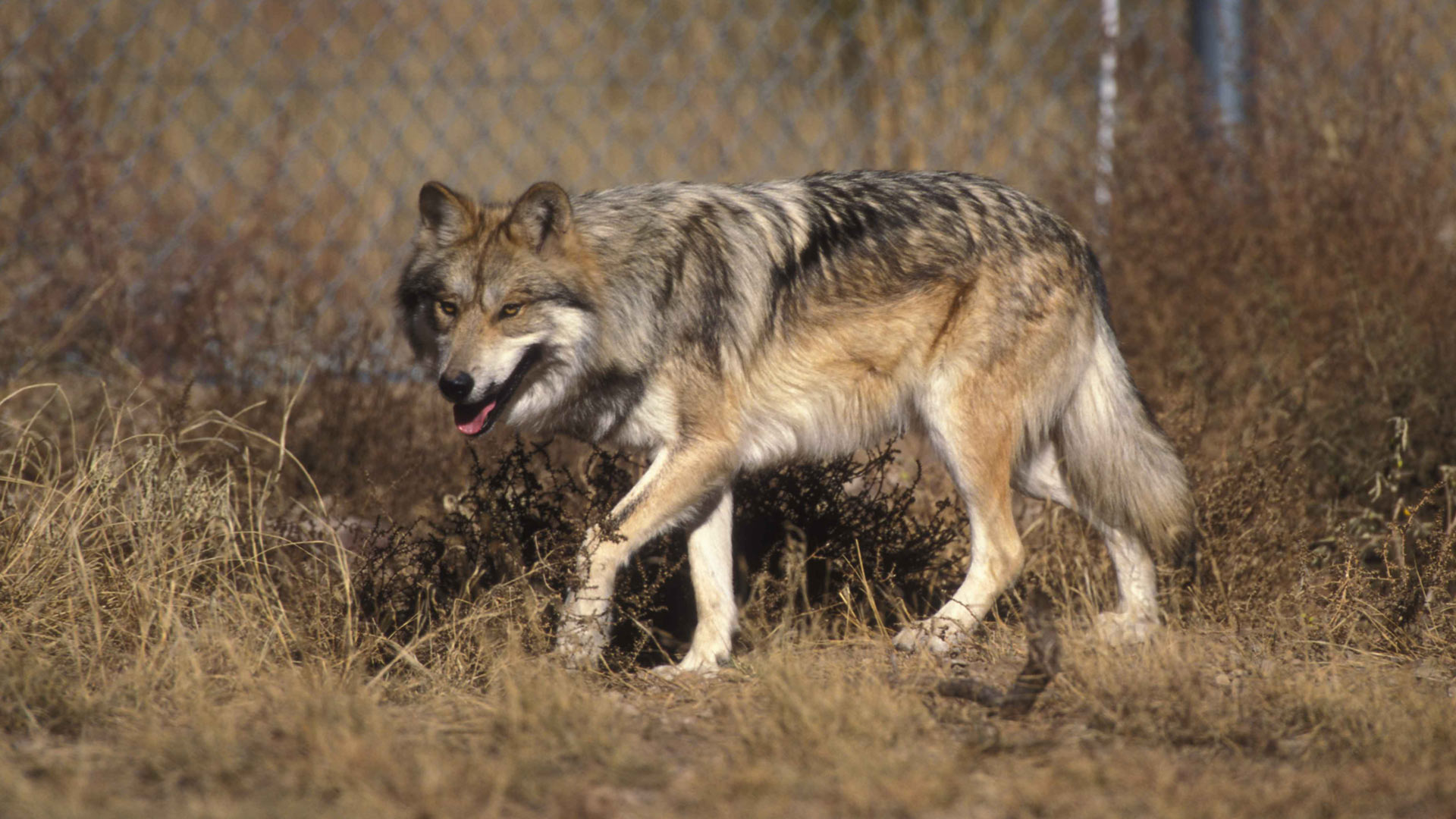 A Mexican Gray Wolf pads through brush near a chain link fence.
A Mexican Gray Wolf pads through brush near a chain link fence.
Wildlife managers have been seeking a plan for recovery of the the endangered Mexican wolf population in the Southwest for more than three decades.
One recent study offers guidance for what to do, with a federal deadline for a plan eight months away.
A successful recovery plan means restoring Mexican wolves enough to maintain genetic diversity, but not so much that they spread out and prey on nearby livestock.
That leaves some livestock owners worrying the animal will never come off the endangered species list, even as some ecology groups want a large-scale release of captive wolves to the wild.
Jim Heffelfinger, with the Arizona Game and Fish Department, said that fostering captive-bred pups with wild litters offers a better solution.
“When they’re raised as wild wolves, they don’t have that human habituation, that human connection of captivity," Heffelfinger said. "They get into much less trouble; they act like wild wolves should.”
Captive wolves are more likely to attack livestock, which makes them targets of illegal killings, he said, adding that any recovery plan for the wolves will fail if it ignores the people who share the land with them.


By submitting your comments, you hereby give AZPM the right to post your comments and potentially use them in any other form of media operated by this institution.